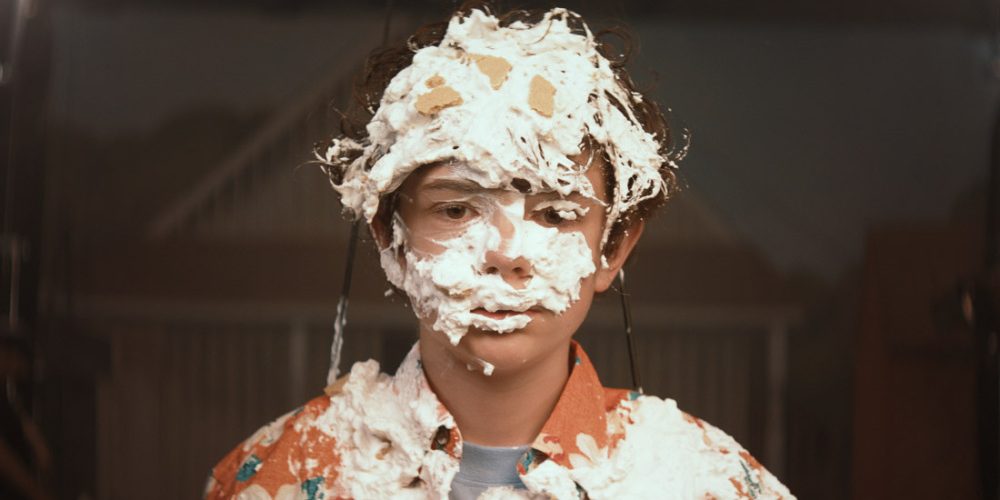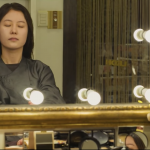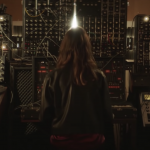Director: Alma Har’el
London Film Festival 2019 review
Opening with a brief parody of the Transformers films and protagonist Sam Witwicky’s grating overuse of the word “No,” Alma Har’el’s Honey Boy immediately foregrounds its function as an act of public self-reflection for writer Shia LaBeouf, who transparently takes a page out of the psychotherapy playbook by immersing himself in the role of his own abusive father.
Clearly the star who once arrived at the Berlin Film Festival red carpet with a paper bag over his head displaying the words “I AM NOT FAMOUS ANYMORE” has little time these days for the old-fashioned notion that an artist ought to disappear behind their art. But what may have seemed indulgent and solipsistic in theory becomes a work of affecting warmth and generosity in execution, tenderly evoking the roles we play and the pretences we put on for the sake of art and pride alike.
Lucas Hedges plays 22-year-old Otis Lort, an unstable, alcoholic actor and obvious fictional counterpart to LaBeouf himself. After a drunk driving accident lands him in rehab, Otis is encouraged to reflect on his childhood and open up about the trauma that may have led to his addiction. From here, the film unfolds as a collage of moments and memories, alternating between the equally lonely journeys of 12-year-old Otis (Noah Jupe) and his frustrated older self, the latter of whom initially regards the sentimental treatment techniques of his rehab with undisguised cynicism.
Otis’ reluctance to be vulnerable around his peers and counsellors seems directly rooted in his tumultuous relationship with his father James, who quickly establishes himself as the kind of dad who refuses to hold his son’s hand and belittles him for the size of his dick. Almost every moment of warmth between James and Otis is immediately undermined by some new cause for tension, initiated by a man who can’t help but exude insecurity and self-pity.

Much like Otis, James is a performer of sorts, both in the sense that he used to work as a rodeo clown, and in the way he always seems to be putting on a front. While it’s clear that some part of James is aware of how poorly he treats his son, his own ego keeps him forever at arm’s length. Consequently, the young Otis learns to keep his pain to himself, to the point where he becomes reluctant to let it go. Though the film itself is an explicit example of cinema being used as an outlet for personal demons, Honey Boy’s rehab scenes also suggest the unhealthy flipside to this catharsis, observing how Otis continues to cling to his anguish in the name of art.
While the film is consistently imbued with a despondent air of solitude, Har’el’s richly textured, often dreamy visuals point towards a reawakening, as though the whole work exists within the first light of a new day. Nonetheless, in the stretches where Honey Boy loses some of its dramatic momentum, it’s tempting to speculate that the story may have hit harder if the director had been a little bolder and more intuitive in her craft.
Though the premise seemingly calls for a narrative that unfolds by the logic of psychology and memory, Har’el’s approach to Otis’ childhood feels linear and literal to a fault. And while the film succeeds in vividly conveying the experiences of 12-year-old Otis, we don’t always get a developed sense of what each of these memories mean to 22-year-old Otis as he delves into his past. As a result, Honey Boy often comes across as two separate stories that are only superficially connected by their main character.
But if the interplay between past and present is ultimately too vague for Honey Boy to hit all its emotional marks, we’re still left with a thoughtful and moving depiction of a toxic relationship and the lasting scars it leaves. If there’s any central epiphany to be found in LaBeouf’s cinematic self-portrait, it’s that the long road to psychological recovery starts with acknowledging and understanding your inner demons. Evidently, LaBeouf has gone the extra mile to do just that, and the resultant film packs enough insight and empathy to serve as a similarly therapeutic experience for the viewer.





